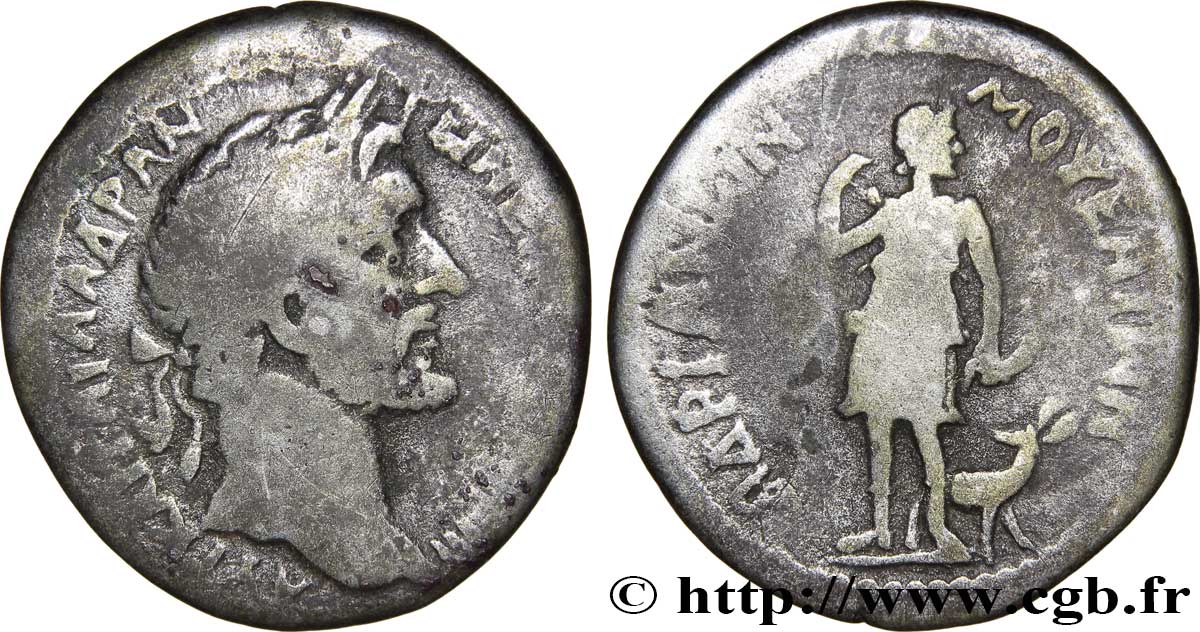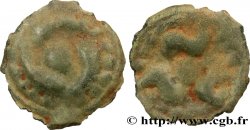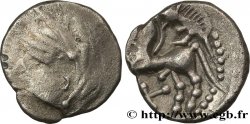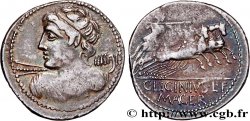Live auction - bpv_318440 - ANTONINUS PIUS Tétradrachme syro-phénicien
Чтобы принять участие в торгах, вы должны войти в систему и стать подтвержденным участником аукциона. Войдите, чтобы сделать ставку. Ваш аккаунт будет подтвержден в течение 48 часов. Не ждите до закрытия торгов, чтобы зарегистрироваться.Сделав ставку на данный товар, вы вступаете в юридическое соглашение на покупку выбранного товара и нажатием кнопки «Сделать ставку» подтверждаете принятие вами условий интернет-аукционов cgb.fr.
Ставка может бить сделана только в полном эквиваленте евро. Торги закроются согласно времени, указанному в описании товара, все ставки, сделанные после закрытия торгов, учитываться не будут. Не следует откладывать предложение вашей ставки до последнего момента, так как система может не успеть обработать вашу заявку, и ваша ставка не будет принята. Более детальную информацию вы найдёте здесь: FAQ по интернет-аукционам.
Все ставки победителей подлежат комиссии 18%.
Все ставки победителей подлежат комиссии 18%.
| Оценить : | 280 € |
| Цена : | 230 € |
| Максимальная предлагаемая цена : | 261 € |
| Конец торгов : | 17 December 2024 14:17:47 |
| Участников : | 2 Участников |
Тип Tétradrachme syro-phénicien
Дата: 139
Монетный двор / Город: Mopsus, Cilicie
Металл: silver
Диаметр: 24 mm
Ориентация осей монеты: 6 h.
Вес: 09,29 g.
Редкость: R3
Комментарии о состоянии
Importante usure, décentré au droit, la majeure partie des légendes lisibles. Patine de collection ancienne
Ссылки в каталоге: :
Происхождение:
Cet exemplaire, le 0731_003 de la base TSP, provient de la vente 129 de Münz Zentrum du 7 septembre 2005, lot 225
Лицевая сторона
Аверс: описание: Buste nu lauré d’Antonin le Pieux à droite, vu de trois-quarts en arrière.
Аверс: легенда: AUT KAIS T AIL AD ANTwNEINOS SEB EU P P
Аверс: перевод: (L’empereur césar Titus Aelius Hadrien Antonin auguste pieux père de la patrie).
Обратная сторона
Реверс: Описание: Artémis debout de face regardant à droite, sur ligne de terre, sa biche à ses pieds à droite, extrayant une flèche de son carquois.
Реверс: легенда: ADRIANwN MOYEATwN
Реверс: перевод: (Des habitants de Mopsos d’Hadrien).
Комментарий
Dans la base TSP maintenue par Michel Prieur, huit exemplaires sont maintenant répertoriés dont un seul en musée, à Oxford.
In the TSP database maintained by Michel Prieur, eight examples are now listed, only one of which is in a museum, in Oxford.
In the TSP database maintained by Michel Prieur, eight examples are now listed, only one of which is in a museum, in Oxford.








 Cообщить об ошибке
Cообщить об ошибке Распечатать страницу
Распечатать страницу Отправить мой выбор
Отправить мой выбор Задать вопрос
Задать вопрос Consign / sell
Consign / sell
 Информация
Информация















